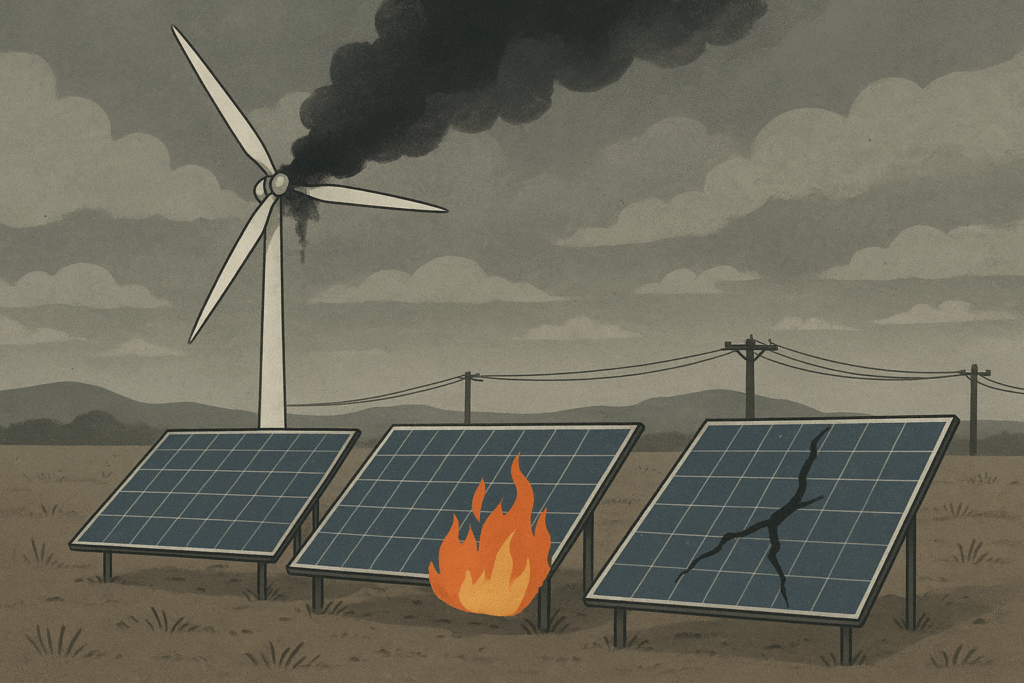India is emerging as a global powerhouse in renewable energy. With ambitious government policies, massive investments, and a surge in clean tech innovations, startups in India are stepping into solar, wind, and energy storage sectors like never before. Cities like Bangalore are becoming hotbeds for innovation, nurturing some of the best startups in India.

Startups in India: Unlocking Opportunities in Renewable Energy
Government Support Driving Startups in India
The world of startups in India is overflowing with possibilities. Both the Central and State Governments are actively fueling this ecosystem by offering strong policy support and financial incentives.
Some of the major benefits include:
✅ Capital Subsidy
✅ Interest Subsidy
✅ Power Subsidy
✅ Exemption in Electricity Duty
✅ Stamp Duty Waiver
✅ R&D Support
✅ Logistics Assistance
These initiatives significantly reduce the entry barriers for entrepreneurs and create a fertile ground for business growth.
Knowledge + Skills = Successful Startup
Today, anyone with deep knowledge, innovative ideas, and entrepreneurial skills can establish a successful startup and transform it into a scalable business. Government schemes and financial aids make the journey much smoother compared to the past.
Why Renewable Energy is the Future for Startups in India
As climate change becomes one of the biggest global challenges, world leaders are prioritizing sustainability. This makes renewable energy one of the most promising sectors for startups in India.
Key Areas for Startup Opportunities
🌞 Solar Power Projects
🌬️ Wind Energy Ventures
⚡ Green Hydrogen Production
🔋 Energy Storage & Battery Solutions
🔄 Hybrid Renewable Systems
The renewable sector is not just about profits—it’s about building a sustainable future while creating impactful businesses.
However, success in this sector is not guaranteed. Even the top startups in India and leading global ventures have faced major setbacks due to financial mismanagement, technical pitfalls, and unpredictable policies. By studying these failures, entrepreneurs can avoid costly mistakes and position their ventures for long-term success.
Global Failures in Renewable Energy and Their Critical Lessons
- Ivanpah Solar Thermal Project (USA)
Once hailed as a game-changing project, Ivanpah under-delivered electricity and faced harsh environmental criticism for bird deaths and excessive water usage.
Key Lesson for Indian Startups: Overpromising and underdelivering damages credibility. Focus on realistic performance projections and sustainable designs to build trust and long-term growth.
- Solyndra Bankruptcy (USA, 2011)
Despite $535 million in government-backed loans, Solyndra failed due to high-cost technology that could not compete with cheaper Chinese panels.
Key Lesson for Indian Startups: Innovation without cost competitiveness is risky. Policy support alone cannot replace solid market viability.
- Lake Turkana Wind Power (Kenya, 2017)
Africa’s largest wind farm faced massive financial strain due to delayed grid connections despite on-time project completion.
Key Lesson for Indian Startups: Infrastructure readiness is as critical as generation capacity. A great project without proper grid access can become a financial disaster.
Indian Case Studies: Lessons from Failures for startups
A. Suzlon Energy – From Market Leader to Debt Trap
Suzlon, once a global wind energy giant, faced financial distress due to aggressive expansion and debt-heavy acquisitions.
Lesson for Startups in Bangalore and Beyond: Financial discipline equals technical expertise. Ambition must be balanced with sustainable growth strategies.
B. Lanco Infratech – Solar Dreams Crushed
Over-leveraged in the Jawaharlal Nehru National Solar Mission, Lanco faced project delays and high costs, eventually filing for bankruptcy in 2017.
Lesson for Top Startups in India: Execution excellence and project management are vital. A strong plan can prevent financial collapse.
C. Husk Power Systems – Biomass Mini-Grids
Initial biomass plants in Bihar and UP shut down due to fuel shortages and maintenance issues. Pivoting to solar hybrid mini-grids became their path to survival.
Lesson for Best Startups in India: Flexibility and business model innovation are game-changers. Adaptation is crucial in a fast-evolving sector.
D. Small Biomass Gasification Projects
Several small operators failed due to unreliable biomass supply and lack of skilled manpower.
Lesson for Startups in India: Supply chain and resource planning must be integrated into your core strategy.
Policy and Regulatory Risks: A Hidden Threat
Investing in renewable energy often depends on favorable government policies and incentives. However, policy changes, new taxes, or additional project requirements can impact your return on equity (ROE) and liquidity. Unforeseen regulatory shifts can increase capital and operational costs, potentially stalling investment.
Power Lesson for Startups: Always conduct a thorough policy risk assessment. Factor in potential regulatory changes, ensure incentives are reliably available, and build contingency plans into your investment strategy. Startups that anticipate regulatory risks are far more likely to thrive and become top renewable energy startups in India.
Powerful Takeaways for Startups in India
Avoid Over-Reliance on Policy: Sudden tariff changes or subsidy cuts can derail growth.
Prioritize Grid & Infrastructure: Generation without evacuation capacity creates financial bottlenecks.
Financial Sustainability is King: Debt-heavy growth can destroy even market leaders. Adopt lean financing.
Community & Environmental Fit: Ignore these at your peril—resistance can sink projects.
Innovation + Market Viability: Technologies must be unique, cost-effective, and scalable.
Proactive Policy Risk Management: Analyze stability, foresee regulatory and policy changes, and safeguard ROE.
By learning from both global and Indian failures, renewable energy startups in India—especially in Bangalore and other hubs—can avoid pitfalls, scale efficiently, and become part of India’s clean energy revolution.
Following are key resources to find out about bankruptcy or liquidations
1.NCLT
Leave a Reply